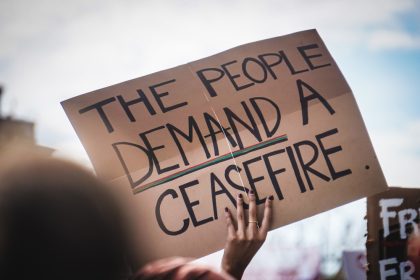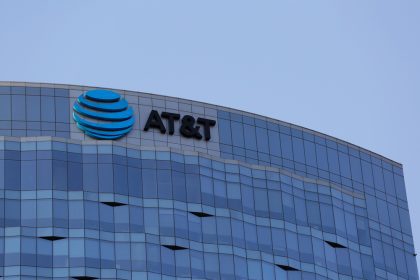A pattern of misconduct spans nearly three decades as new incident with Dolphins player sparks fresh scrutiny
Miami officer’s controversial career puts spotlight on police accountability
The recent detainment of Miami Dolphins star Tyreek Hill has cast a harsh spotlight on a Miami-Dade police officer whose 27-year career has been marked by repeated disciplinary actions and allegations of aggressive conduct. Officer Danny Torres, who was involved in Hill’s detention near Hard Rock Stadium, has accumulated six suspensions over his tenure, raising serious questions about police oversight and departmental accountability measures.
A history of confrontation
Torres’s record with the Miami-Dade Police Department reveals a troubling pattern of aggressive encounters and policy violations stretching back years. The officer’s disciplinary file shows suspensions clustered particularly heavily around 2016, when he received three separate disciplinary actions. Additional suspensions were recorded in 2014, 2018, and 2019, often stemming from citizen complaints about his conduct during routine interactions.
The September 2024 incident involving Hill, which resulted in Torres’s administrative leave, follows a series of controversial encounters that have defined his career. The NFL wide receiver’s detainment, captured on video showing multiple officers using forceful tactics while Hill was taken to the ground and handcuffed, ended with minor traffic citations that were later dismissed when the citing officer failed to appear in court.
Escalating encounters raise red flags
Among the most significant incidents in Torres’s history was a 2018 confrontation that resulted in the intentional damage of a civilian’s driver’s license. During this encounter, Torres deliberately disabled his body camera, violating departmental protocols and earning him a 10-day suspension. This incident particularly troubled department supervisors as it demonstrated both poor judgment and an apparent attempt to avoid documentation of his actions.
Pattern of force-related incidents
The officer’s conduct during a 2014 landlord-tenant dispute further illustrates his approach to civilian interactions. That situation resulted in reported injuries to a female bystander, despite Torres’s denials of misconduct. The department ultimately suspended him for violating use of force policies, adding another mark to his growing disciplinary record.
A separate incident in 2015 involved accusations of excessive force against two sisters during what began as a verbal alteration. While Torres avoided discipline for use of force in this case, his unprofessional comments during the encounter resulted in disciplinary action for conduct unbecoming an officer.
Systemic challenges in police oversight
The repeated incidents involving Torres highlight broader challenges facing police departments nationwide in addressing officer conduct and maintaining public trust. Despite multiple suspensions and documented patterns of aggressive behavior, Torres remained on active duty until the Hill incident forced the department’s hand.
Accountability measures under scrutiny
The Miami-Dade Police Department’s handling of Torres’s case raises questions about the effectiveness of current disciplinary procedures. Critics argue that the ability of officers with multiple suspensions to remain on active duty points to systemic failures in police oversight and accountability structures.
The department’s internal affairs processes, designed to investigate and address officer misconduct, appear to have fallen short in preventing repeated incidents. This pattern suggests that current disciplinary measures may be insufficient deterrents for problematic behavior.
Impact on community relations
Torres’s history has created ripple effects throughout the Miami-Dade community, straining already tenuous relationships between law enforcement and local residents. Each controversial incident has eroded public confidence in the department’s ability to self-regulate and maintain professional standards among its officers.
The Hill incident has amplified these concerns, drawing national attention to local policing practices. The high-profile nature of this latest encounter has sparked renewed calls for reform and stronger oversight measures within the department.
Looking forward: Reform and accountability
As the internal investigation into the Hill incident continues, the Miami-Dade Police Department faces mounting pressure to address systemic issues in officer oversight and accountability. The case has become a flashpoint in ongoing discussions about police reform, highlighting the need for more effective mechanisms to identify and address problematic behavior before it escalates.
The department’s response to this latest incident may signal its willingness to implement meaningful changes in how it handles officer misconduct. However, the long history of similar incidents suggests that superficial reforms may be insufficient to address deeply rooted institutional challenges.
The Torres case serves as a critical example of the complex challenges facing law enforcement agencies as they work to balance officer retention with public safety and professional conduct standards. As departments nationwide grapple with similar issues, the resolution of this case could provide important insights into effective approaches to police reform and accountability.
The ongoing investigation into the Hill incident, combined with Torres’s extensive disciplinary history, presents an opportunity for the Miami-Dade Police Department to demonstrate its commitment to meaningful reform. The outcome of this case may well determine whether the department can rebuild community trust and establish more effective oversight mechanisms for the future.

















